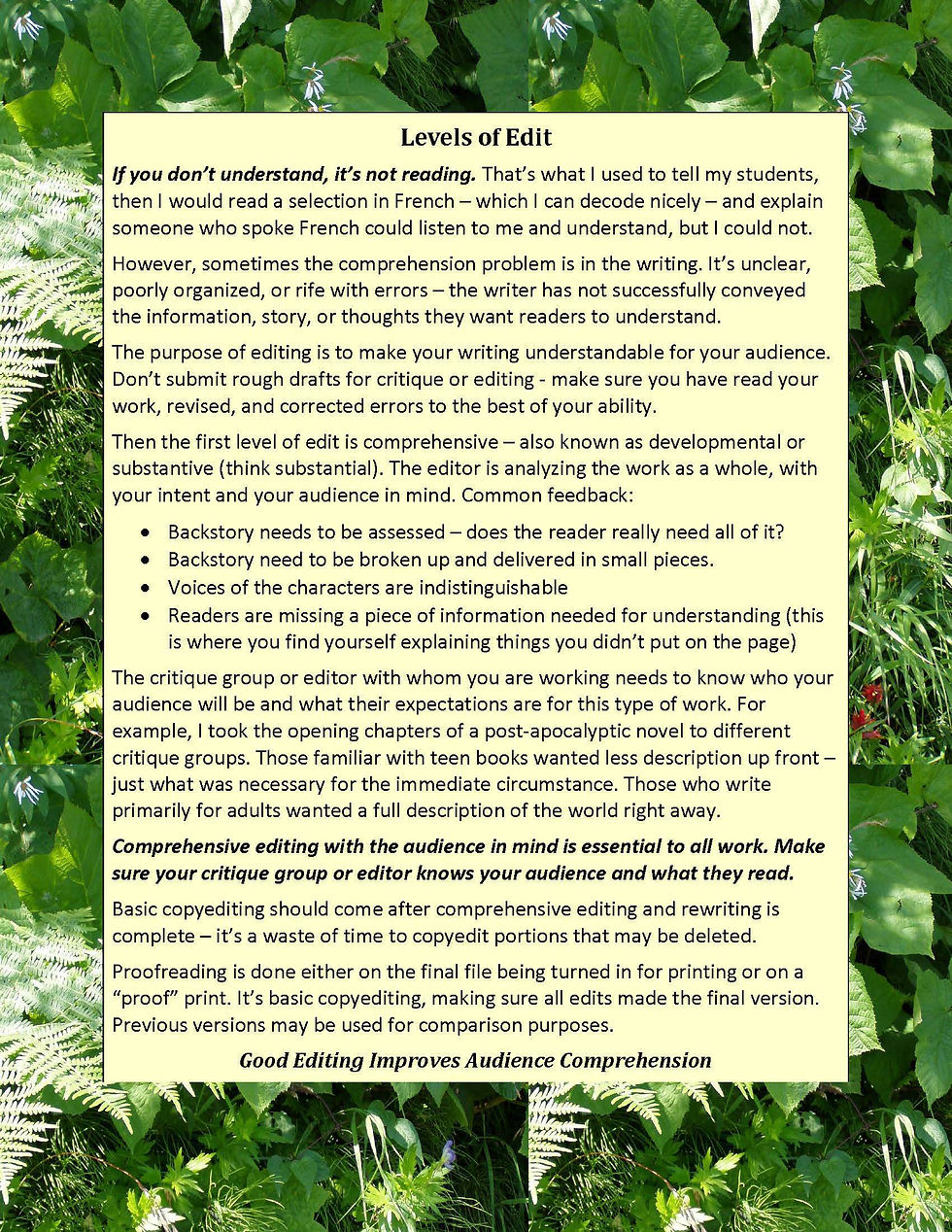- Sheri McGuinn
- Nov 27, 2023
- 2 min read

There are different levels of edit. Before you hire an editor, make sure you know which kind of editing they are going to do - and whether or not your manuscript is ready for that type of edit. Insist on a clear explanation, because the types of edit are somewhat fluid.
If you're not quite sure how to tell your story or present your non-fiction work; or you're stuck part way; or you're finished but not quite satisfied with the project as a whole, a coach or consultant may help.
Developmental editors, substantive editors, structural editors, content editors, and book doctors may provide that type of global recommendation, but be clear if that's what you want. They also do closer developmental work, where they zero in on problems and offer solutions. They may do some line editing to demonstrate how revisions should be made. They may do major revisions or revise the organization of your work. (This is still primarily using your words, not creating new material from scratch like a ghostwriter would do.)
Line editors come in when you're satisfied the manuscript is shaped the way you want it. They work at the sentence and paragraph level to improve style and language. You might hire someone specifically as a line editor, but more often this kind of editing is done by the developmental editor once major revisions have been completed or as part of the copyediting service. Just don't assume it's being included - ask.
Copyediting is the nitty gritty detail work - spelling, grammar, punctuation. Ask if they include checking references and/or accuracy. Do they create a style sheet to keep the manuscript consistent throughout? Do they make corrections, or give notes for you to do that? Do they review the file in publication format?
Proofreading is a final check for typos and other errors. It should be done when the project is in publication format. It's best if they are familiar with publishing and genre conventions. If you're self-publishing, repeat proofing when you have a physical "proof" copy, before the book is released for purchase. If you're working with a publisher, ask if you can have a proof copy before the publication date. Sometimes errors that are missed on a screen pop right out once they're on paper.
Make your manuscript your best work. If you self-publish, make it every bit as good as a traditionally published book.
The Editorial Freelancers Association has a rate table. Read the disclaimers.







